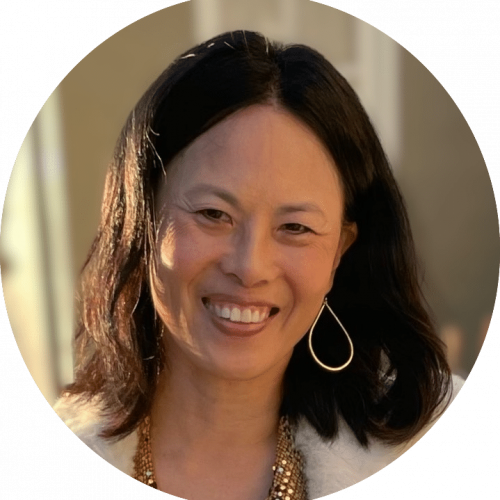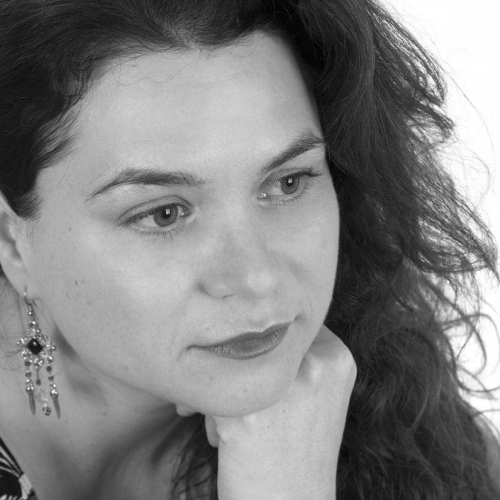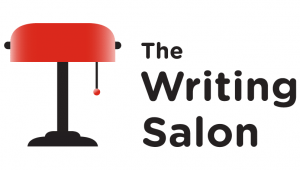You’re teaching your Collage Writing Lab again this winter. How does the concept of collage help you imagine and organize your work?
My brain has two warring sides. One is a linear thinker – I think about cause and effect, and I like to see ideas connect in a logical way. The other side understands that real life is almost never clear-cut, and the stories we tell ourselves and others about who we are and how we came to the place where we are can’t be explained like a mathematical equation. Our lives are more like a quilt, light and dark parts contrasting, forming patterns and pictures that we can only see when we step back to take in the whole thing.
I think of characters and stories the same way. Like quilters, writers generate fragments of a character or story through flashbacks and flashforwards, half-scenes and setting details, and dialogue and interiority. We need to piece them together in a way that reveals the picture we want to share, and we have to be willing to revise, to rearrange, until it feels right. The threads that run through my stories are often an underlying question, a strong voice, or sometimes an image or an extended metaphor.
One thread in your creative nonfiction reflects on the many ways parenthood and a writing life intersect, in practice and in our cultural imagination. How do you make space for each of these, and how do they feed and inform each other in your work and life?
Parenting often impinges on my writing time, but one way to make space for writing is to bring it into my parenting! I have been pushing journals on my kids since they learned how to write words – travel journals when we go on trips, and more recently, nature journals (art and words on a blank page). They know I have a journal for everything. Travel, separate from personal, separate from notes on writing projects, separate from bound “letters” that I have been writing to each of them sporadically since they were in utero.
They are both fantastic birthday card and letter writers now. My 8th grader asks to read the essays I’m working on, and my 5th grader once sat next to me and added 500 words to his speculative fiction story while I procrastinated by making a family tree of the generations in my novel. They want to know when they’ll get to read my “letter” journals.
And of course, being a parent injects about a billion ideas, concerns, miracles, and uncomfortable experiences into daily life. All of these can be seeds of a story or essay. I’m not attracted to writing that pretends parenting is one giant, charming Hummel figurine, and I think it’s valuable to write and share stories with both parent and child-free readers that show this life in all of its true, complex, baffling glory.
Can you share a memorable teaching moment, where a student’s work surprised or moved you, or where you learned something important from your students?
I once assigned an ekphrastic prompt to a large class of college students. Ekphrasis is written work inspired by visual art. One student wrote about art that his father had painted. Later, in a reflective response to the assignment, he said that he almost never spoke about his dad, who had not been an active presence in his life. The subject had always been fraught for him. But writing about his father’s art gave my student a way to humanize and think about his dad in a way that felt safe.
That single response made my entire semester of extremely hard work worthwhile.
What are you working on now? Do you have any projects you’re especially excited about?
I am working on a novel. It is an extremely large bite that I’m not sure I can chew, mostly because there is a historical fiction element to it. It motivated me to borrow very thick books on Chinese history from the library, and I fall asleep when I read them. My father would have been so proud to see these tomes on my desk – Chinese history was one of his favorite research topics, but I was never interested in it as a kid. This project also motivated me to find a translator for my grandmother’s journal, which is written in classical Chinese and has been tucked away unread for the past 35 years. I think that somehow, writing this novel will bring both my dad and my grandmother into the present for me.

Ann Guy is a writer and recovering engineer who was born in the Philippines, grew up among the cornfields and cow patties of Western Michigan, and now lives in Oakland, California with her husband and two kids. She writes fiction and creative nonfiction, and her work has been featured in CRAFT Literary, River Teeth (Beautiful Things), Sweet Lit, Entropy, MUTHA, Ekphrastic Review, Literary Mama, and Motherwell. A graduate of MIT, UC Berkeley, and San Francisco State University, her favorite spaces are learning environments. She has taught creative writing classes at San Francisco State University and private workshops in the East Bay.

Kerry Muir‘s plays include Running on Moontime, The Night Buster Keaton Dreamed Me, and Befriending Bertha/Conociendo a Bertha (a one-act for children), which were published in dual language (Spanish-English) editions by NoPassport Press as part of their Dreaming the Americas series, curated by Lifetime Achievement Obie Award-winning playwright, Caridad Svich. Her plays have garnered awards and productions at the Nantucket Short Play Festival, Great Platte River Playwrights Festival, Gibraltar International Drama Festival, and elsewhere. Her prose has appeared in Kenyon Review Online, Crazyhorse, Riverteeth, West Branch, Willow Springs, Fourth Genre and more. Two of her essays, “The Bridge” and “BLUR,” were named as notable in Best American Essays of 2011 and 2018, edited by Edwidge Danticat and Hilton Als, respectively. Her short film “Madame” (an official selection of San Francisco Independent Film Festival 2024, Cinema on the Bayou Film Festival 2024, AHITH Film Festival 2023) is currently making the rounds on the film festival circuit. Visit her online at: https://kerry-muir-5gnx.squarespace.com.
